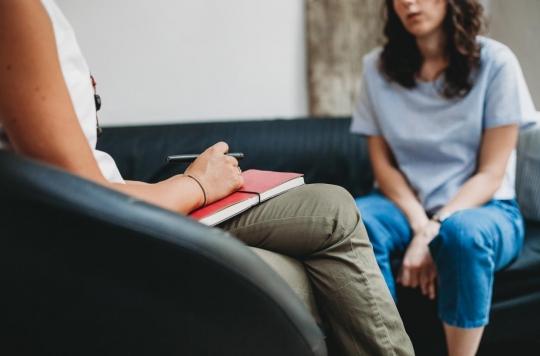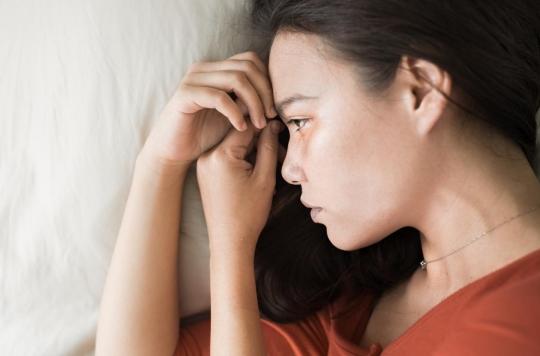“We have never worked so much as in the last two, three months”, immediately asserts Séverine Némesin, when we discuss with her the increase in mental disorders linked to the pandemic. “The first confinement went well, but since December, we have witnessed an explosion of pathologies.” But why ? And what are the reasons that could push you to consult? The answers of Séverine Némesin, clinical psychologist.
Why this increase in psychological problems?
Depressions, burnouts, social phobias : the Covid-19, by disrupting our lives, has caused a lot of collateral damage. A vague “potentially psychiatric”, according to the expert, which is due to many factors. Among them: the unprecedented and uncontrollable aspect of the pandemic, a certain feeling of oppression, the economic slump, the weariness of the populations after the relative unity of the first confinement and the duration of the situation, the latent animosity between skeptics and optimists. regarding the management of the virus, but also the many problems caused by the confinements and the curfew (family tensions, increase in domestic violence, excessive mental load at home, etc.)
“And there is also a loss of social ties, explains Séverine Némesin. It is particularly complicated for young people, who are going through a period in their life when they should experience a lot of things and cannot do so. I would say that it is the part of the population that lives the least well with this situation. But that’s not all : “I also see a lot of people who are grieving their life before and who want to redefine themselves, whether geographically or professionally.”
Consult to plan better
This desire to rethink your life can also be one of the reasons for calling on a professional. “It’s rather positive. The people who are in this process are the ones who are doing the best. When it comes to redefining what is important and what is not, what we want and what we do not want more, seeing a psychiatrist can allow you to project yourself.” Especially since this work is carried out outside the family framework: “This makes it possible to keep a space outside the closed doors of the house or the restricted groups that we meet on a daily basis to deposit things. It is a window open to the outside.“
In addition, consultations will also make it possible to “monitor the mental state and possibly prevent the onset of mental disorders, continues Séverine Némesin. When something distressing happens in our environment, it can awaken archaic anxieties that have been there for a long time. Going to see a shrink means being able to discern what is related to what you are really going through and what you have experienced before. There is a telling aspect.”
Clinical psychologists, psychiatrists and word of mouth
Where to turn? “If you have a history of psychiatric illnesses and/or psychological suffering, it may be best to turn to a psychiatrist,” explains the expert whose job as a clinical psychologist is also to make an initial assessment when the disorders are new, before directing the patient to another specialist. “We can, beyond psychiatrists, send people to see therapists focused on EMDR (a method based on eye movements, editor’s note.) or hypnotherapy.”
And how to choose? “There are listening numbers, but I would say that it is often word of mouth that brings us people. Because relatives have had good affinities with such and such a therapist, for example.” A reassuring aspect that the psychologist nevertheless relativizes: “There is not yet a specialized Covid shrink. We weren’t prepared for this. But the complaints are strong, pressing, and there are urgent matters to consult that may not have been there before.” So one thing is certain: are you listening, and do not hesitate to take the plunge in case of doubt and/or suffering, if only for the time of a small consultation. You can never be too careful.
Read also:
- Teleworking: “This time saved must be used to fill something that we lack on a daily basis”
- Alcoholism: “isolation, anxiety and always this alcohol at hand, are all reasons that can make you dive again”
- I am stressed, when should I consult?
- Relaxation: an exercise to reconnect with your body
- Meditation: 5 tips for getting started
















